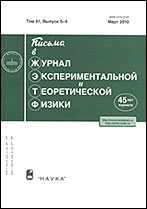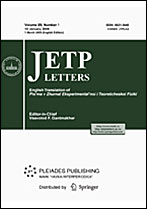|
This article is cited in 1 scientific paper (total in 1 paper)
QUANTUM INFORMATION SCIENCE
On the quantum-mechanical bound on the loss of information through side channels in quantum cryptography
S. N. Molotkovabc
a Academy of Criptography of Russia
b Institute of Solid State Physics, Russian Academy of Sciences
c M. V. Lomonosov Moscow State University, Faculty of Computational Mathematics and Cybernetics
Abstract:
The security of cryptographic keys in quantum cryptography systems is guaranteed by fundamental quantum mechanical exclusion principles. A quantum channel through which quantum states are transferred is not controlled and an eavesdropper can perform any modifications with it. The security of quantum key distribution protocols has already been proved [M. Tomamichel et al., Nature Commun. 3, 634 (2011); S. N. Molotkov, J. Exp. Theor. Phys. 115, 969 (2012)], including the realistic case of a finite length of transmitted sequences. It is always assumed that the eavesdropper has neither direct nor indirect access to the transmitting and receiving equipment. The real situation is somewhat different. The preparation and detection of quantum states occur according to random sequences that are generated on the transmitter and receiver sides. Detecting electromagnetic radiation generated in these processes, the eavesdropper can obtain additional information on a key. The upper quantum-mechanical bound on the amount of information of the eavesdropper on the key that can be obtained through a side channel has been determined.
Received: 11.03.2013
Revised: 15.04.2013
Citation:
S. N. Molotkov, “On the quantum-mechanical bound on the loss of information through side channels in quantum cryptography”, Pis'ma v Zh. Èksper. Teoret. Fiz., 97:10 (2013), 693–699; JETP Letters, 97:10 (2013), 604–610
Linking options:
https://www.mathnet.ru/eng/jetpl3431 https://www.mathnet.ru/eng/jetpl/v97/i10/p693
|


| Statistics & downloads: |
| Abstract page: | 286 | | Full-text PDF : | 89 | | References: | 54 | | First page: | 24 |
|





 Contact us:
Contact us: Terms of Use
Terms of Use
 Registration to the website
Registration to the website Logotypes
Logotypes







 Citation in format
Citation in format 
